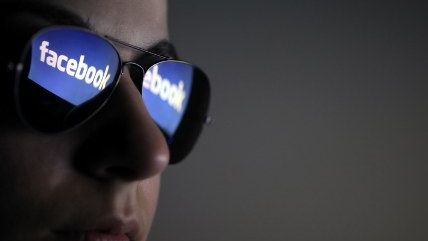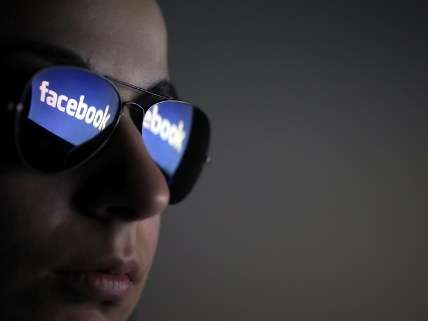Policing 'Fake News' Is Our Own Responsibility, Not Facebook's
Calling for the social media outlet to censor things, even completely made up stories, can end up in bad places.


So now it's Facebook's fault that Donald Trump was elected president.
If you have any number of friends who like sharing either memes or headlines, you've undoubtedly seen all sorts of fake news stories and fabricated facts.
We're not talking deliberate parodies, like The Onion, though even they fool people now and then. We're talking pieces that are just completely made up by little-known "media outlets" with vague names, and the stories are intended to be perceived as real. Because these stories don't show up anywhere else (because they're not true), people might be more inclined to click the link to read when they see them on Facebook, particularly when the headlines are outrageous.
There's now apparently both a push to act as though these fake stories had a major impact on the election and also that Facebook should do something about it. There has been coverage in the New York Times, Gizmodo, and elsewhere. Google and Facebook have responded in the past by trying to find ways to de-emphasize links from these sites and just recently announced they'll refuse to run ads on fake news sites.
There are a lot of concepts to parse on what seems like a minor election side story (and the latest reason for some people to ignore why Hillary Clinton actually lost), but it's worth exploring more deeply.
First of all, perhaps consider that thinking people voted because of fake information they were exposed to on Facebook says more about you than them. To the extent that people fall for fake news, the fact that such news affirms existing biases certainly plays a major factor. Does anybody have evidence to suggest that fake news actually caused anybody to change their vote?
There is a component to this particular argument that has a stench of "What a bunch of rubes the people are," connected directly to the results of a controversial election. Not that people don't believe in conspiracies or fall for fake news, but as Jesse Walker would point out, Americans across the spectrum believe in them, not just those who would vote for Trump. And I would point out that believing fabricated conspiracy stories perpetuated by fake news sites significantly influenced the election is itself kind of a conspiracy theory.
Second, do you know who was big about pointing out fake news stories? Donald Trump. All those accusations of sexual assault and harassment? He said they're all lies. A smear job. He said he was the victim.
We all understand what people demanding Facebook do something about "fake news" are actually getting at. They're generally not asking for Facebook to serve as an arbiter of the factual components of controversies (though I wouldn't put it past some people). Facebook is not very good at managing controvery. Rather what these folks have in mind that is that there are clearly news outlets that are producing fake news stories on purpose to get page views and earn some cash, and they're absolutely right.
But that's exactly how Trump would describe the media outlets who run with the assault stories. So what these frustrated people need to realize is that if they convince Facebook to censor sharing of these obviously fake stories, then there's going to be a fight over what a "fake story" actually is. There's a bias here—in media circles most obviously—that it's simply going to be a matter of cutting out the outlets making stuff up from whole cloth. These little no-name places that aren't known journalistic outfits.
Why would it end there? Given that Facebook is now so influential in putting information in front of people, the result will most certainly be a push to define "fake" down in order to keep stories that harm certain interests from spreading. And so, yes, forget letting algorithms do all the work. Eventually Facebook staff will be put in a position of determining what is and isn't "real" news. How many people think the Trump sexual assault scandal is fake? How many people think the Hillary Clinton email scandal is fake?
And then there's the American ethnocentricness of it all. A newly released report from Freedom House indicates that internet freedom has been declining for the past six years due to government crackdowns on social media. Before asking Facebook to censor away fake news stories, ask yourself, "Will folks like me be the ones actually deciding what counts as fake news, or it will be powerful and connected government leaders?" I am very certain that Turkish President Recep Tayyip Erdogan would be very happy to tell Facebook which news stories are fake.
I'm not fond of the fake news headlines, and it's frustrating to have to deal with them when they pop up in my news feed, though frequently I find that my Facebook friends have realized they're not true on their own not long after posting them. I am even more concerned, though, at the potential negative long-term consequences of asking Facebook to referee the "realness" of information people are posting.
(Traditional libertarian caveat: Facebook is a private company that can set up whatever posting guidelines it chooses. I would recommend against trying to play referee here.)


Show Comments (106)